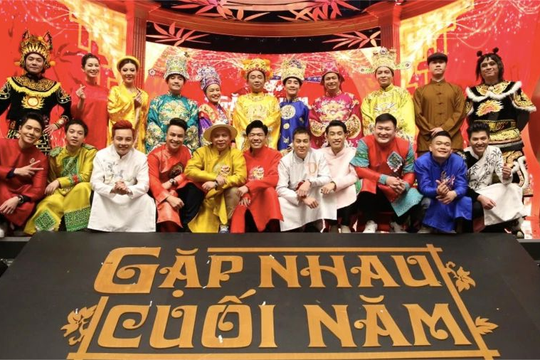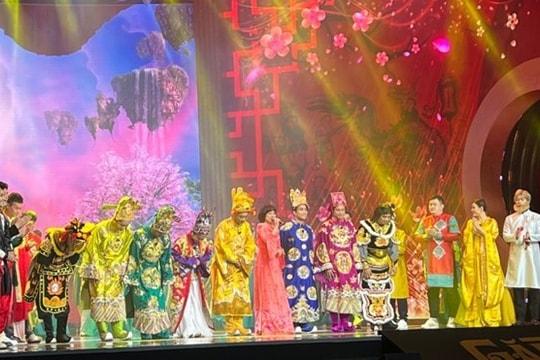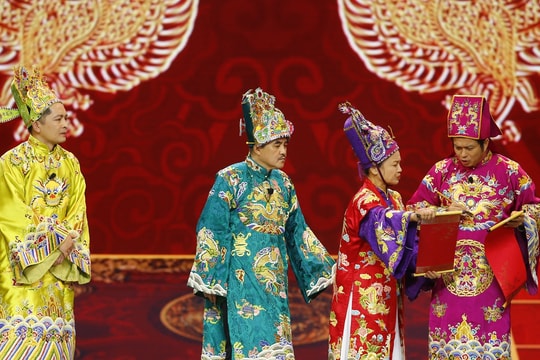Actor Thai Son: I haven't dared to think about playing Bac Dau in 'Tao Quan'
“Meeting at the end of the year - Tao Quan” is considered a “specialty” of New Year's Eve, and for many years has become an indispensable spiritual food for many generations of audiences.
“Tao Quan” reflects the burning issues of society in the past year through a humorous and satirical perspective. When the “Tao Quan” stage was without People’s Artist Cong Ly due to health problems, the audience mentioned many potential faces to take on the role of Bac Dau, including actor Thai Son.
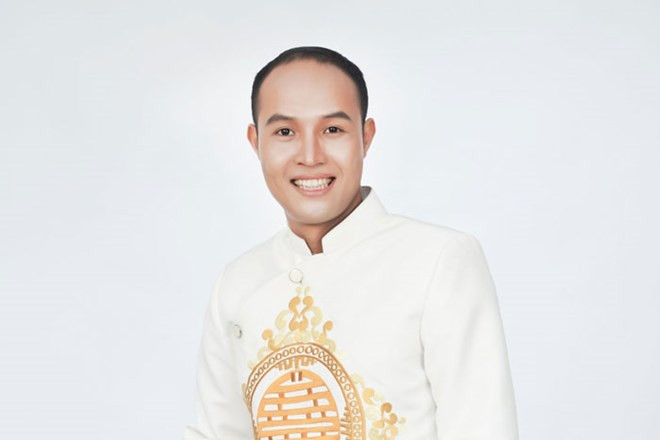
Actor Thai Son. Photo: Character provided
Actor Thai Son started out as a Cheo actor, but he left an impression on the audience through a series of TV series roles, including the character Tu in the movie "Under the tree of happiness", a guest role in the movie "My family is suddenly happy", A Re in the movie "Unbounded war" or Dieu pha che in the movie "Black medicine"...
Through his roles, Thai Son inserts Cheo verses and Xam singing passages to portray the unique and fresh features of the character. In addition, he is also a "hot" name on social networks thanks to his witty and humorous acting style.
Lao Dong Newspaper reporter had a conversation with actor Thai Son about his acting career, the scope of his artist activities and the iconic story of Tet flavor, "Tao Quan".
Impressed with Thai Son from the TV series, many viewers are suggesting Thai Son to play Bac Dau in "Tao Quan". What are your thoughts on this and the love that the audience has for you?
- I can only thank the audience for their love and trust, which is why I made such a proposal. “Gập nhau cuối năm - Táo Quân” is a large, prestigious, and magnificent stage, gathering many talented artists. As an artist, everyone wants to stand on big stages, alongside their colleagues. To be honest, I have not dared to think about what the audience mentioned. I think a talented artist like Cong Ly, with a special role like Bac Dau, is hard to replace, if anything, it is just a continuation.
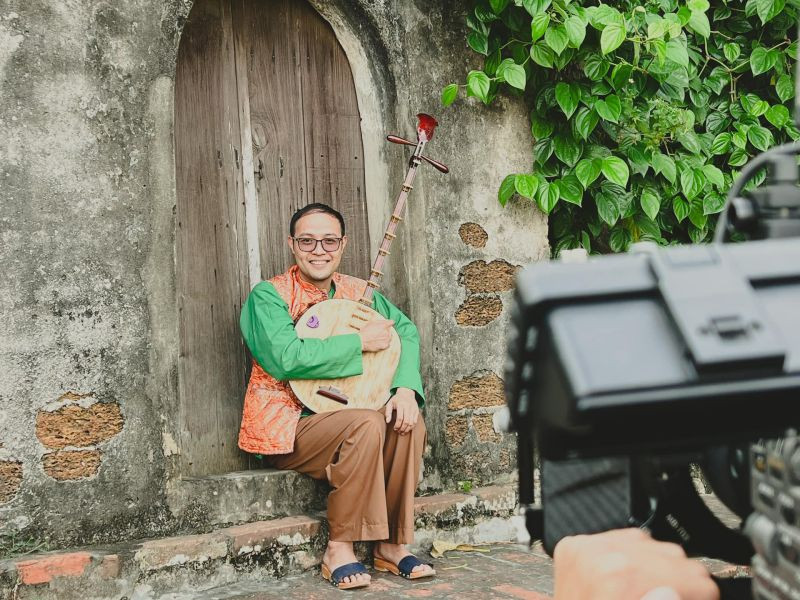
Thai Son behind the scenes of the movie "Under the tree of happiness". Photo: Character provided
Before him, there was People's Artist Tu Long, a famous Cheo actor thanks to television. People's Artist Tu Long thanked television and "Tao Quan" for helping him become famous. People's Artist Tu Long himself always has special feelings for Cheo, and always looks for opportunities to promote Cheo in "Tao Quan". For you, how will the Cheo story be told?
- Cheo always flows inside my body. Whenever there is a work with an opportunity, whenever there is a situation, I put the art of Cheo into it. In “Under the shade of the happy tree”, with the director’s permission and the appropriate situation, I sang Cheo, Xam, and Van. That is also my gratitude to the art of Cheo, to the career that I am pursuing. Like what Mr. Xuan Hinh and Mr. Tu Long did, I take every opportunity to promote Cheo.
People's Artist Tu Long has been with you since you first started your career. How influential has artist Tu Long been to you?
- I really respect People's Artist Tu Long. When I started taking the entrance exam to the University of Theatre and Cinema, my uncle, artist Xuan Theo (Army Cheo Theatre), introduced me to Tu Long and entrusted me with the role. After that, People's Artist Tu Long guided and taught me with the skit "Stealing Fish" to pass the entrance exam to the University of Theatre and Cinema. To have today, I am always grateful to People's Artist Tu Long.
Before I went to university, I often went to the Army Cheo Theatre to watch the seniors perform and rehearse new plays. I loved and admired Tu Long's acting style. He could play many types of roles, and each role was "very passionate and enthusiastic". Not only did he sing well and act well, but he was also a very talented artist in many fields.
I was guided by him from the basics of acting. At that time, I was like a blank page that Mr. Long guided me through the first things. That was a very positive influence right from the beginning because Mr. Tu Long guided me through the most standard acting skills right from the beginning. For me, this was a great luck.
Many Cheo artists have ventured into television and are active on social media to get closer to the audience. If we say that primetime TV dramas are bringing fame and new appeal to Cheo actors Thai Son - is that true, in your opinion?
- Cheo actors or other forms of Vietnamese stage art in general can only reach a limited audience. National television, on the other hand, has many supporting platforms, so it can operate on a wide scale and reach a larger audience. Participating in dramas or comedy films, I can clearly spread more than when performing on stage where only a certain group of audiences enjoy it.
Up to now, you are a special Cheo artist with a personal channel that attracts a large number of followers. How did you build your personal channel to achieve this success?
- In addition to working at the Vietnam Cheo Theatre, I collaborate with an entertainment media company. My team and I build and manage the channel together and bring healthy, serious content. I want to create products that are fun, humorous and have a message for the audience.
In your opinion, is comedy a "gold mine" for making money on social media platforms?
- My point of view is “mastering one art”, any profession that you have expertise, passion for, work enthusiastically and wholeheartedly is a “gold mine”. Comedians in particular and actors in general work very hard. We film every day, every week, if we stop, there is no content to broadcast. Even if a product is loved, the audience will only watch it a second or third time and then they will look for new things to watch.
We always have to work, always have to renew the content, update the situation to put into the product, thereby contributing a little point of view, a little voice to social issues. Comedy is a “gold mine” for those who try their best for it, and other fields, other jobs will also be “gold mines” if we try.
Audiences first learned about Thai Son through social media, then were impressed with him on TV, and then searched for him and were surprised to learn that he was originally a Cheo actor. Do you find this journey a paradox?
- I think it's not a paradox. The audience knows me through Facebook, YouTube or TikTok, those are all platforms I use to serve the audience. For me, the paradox here is not that I am a stage artist who switched to social media and then it was only later that the audience knew I was a Cheo artist.
I think it is adapting to the times, when digital technology opens up new opportunities, requiring artists to innovate, upgrade and follow that flow. Anyway, new forms also help me reach the audience faster, closer than performing in a theater with limited seats. I participate in new platforms, I still get to show my talent, perform, so why would I refuse?
Having played many roles, can you tell us about some memorable memories behind the screen? How did your supporting and guest roles leave an impression on the audience?
- Every film I participate in has its memories. In “The War Without Borders”, the memories are the trips, the filming sessions that had to climb hills and mountains. There was a time when the film was filmed in the rainy season, the film crew had to hire tractors to transport the materials. That trip was hard but gave me the experience, living with the people in the mountains. In the film “Under the shade of the happy tree”, an extra filmed a scene where she slapped me so hard that my “eyes popped out”. It hurt at the time but now thinking back, it’s also fun.
I remember most the moment I drank a lot of water in the movie “Unknown War”. There was no wine in that bottle, just water, but it was not done in one take. When filming, you had to add this and that, close-ups, full shots. After that scene, I was full of water.
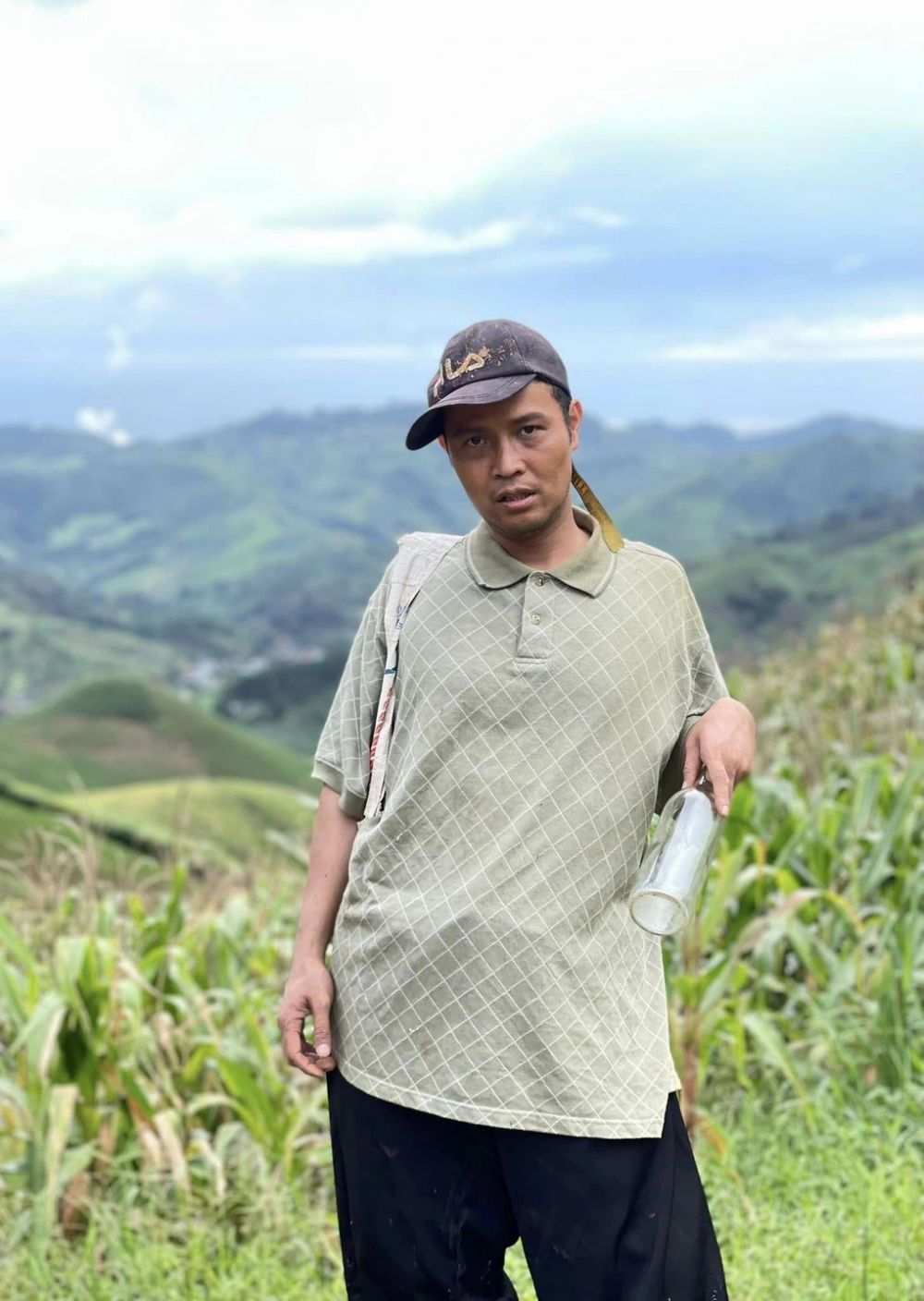
Thai Son plays A Re in the movie "War without borders". Photo: Character provided
When performing Cheo segments on film, do you see any differences between performing Cheo on stage and performing Cheo on television?
- The difference between these two environments is that when working on television or filming comedies, actors can go back and redo the lines if they forget their lines. On stage, actors have to do it correctly and cannot redo it because the Cheo play must continue. When performing Cheo on stage, I can interact directly with the audience, participate, and act together.
Currently, you are quite busy with film projects and personal activities. How do you divide your time between Cheo and acting?
- There are busy times when I have to practice new programs and new exercises. I will ask the agency's leadership for permission to take a few days off or practice later if I receive invitations to cooperate from other units. I have to arrange my time to ensure the quality and efficiency of my work, so as not to affect everyone's overall plans.


